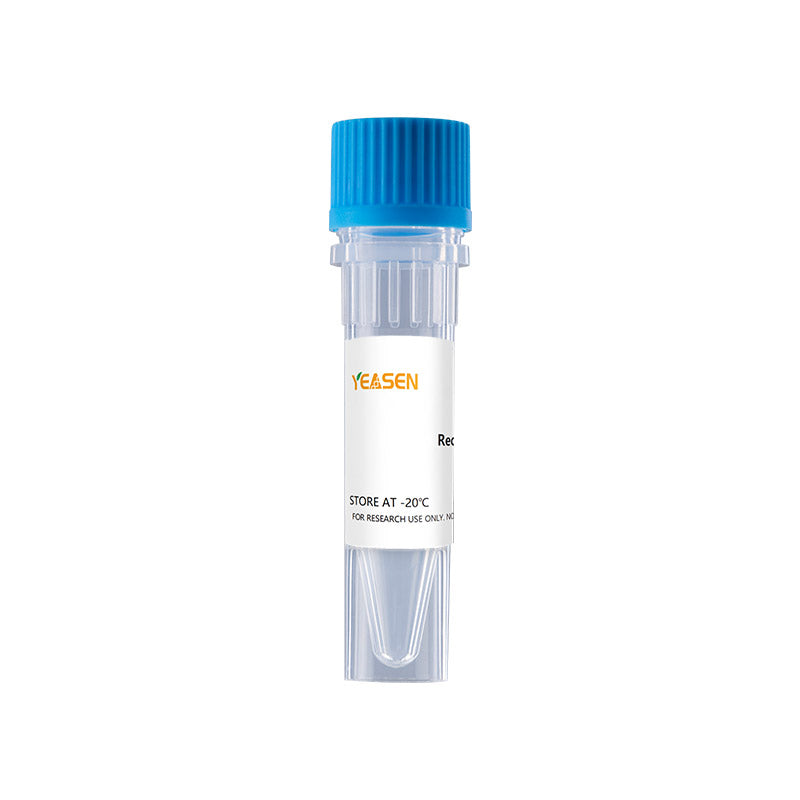Description
The Interleukin 17B (IL-17) family proteins, comprising six members (IL-17, IL-17B through IL-17F), are secreted, structurally related proteins that share a conserved cystine-knot fold near the C-terminus, but have considerable sequence divergence at the N-terminus (1, 2). With the exception of IL-17B, which exists as a noncovalently linked dimer, all IL-17 family members are disulfide-linked dimers (3). IL-17 family proteins are proinflammatory cytokines that induce local cytokine production and are involved in the regulation of immune functions (1, 2). Two receptors (IL17 R, and IL-17B R), which are activated by IL-17 family members, have been identified. In addition, at least three additional orphan type I transmembrane receptors with homology to IL-17 R, including IL-17 RL (IL-17 RC), IL-17 RD, and IL17 RE, have also been reported (14). Human IL-17B cDNA encodes a 180 aa protein with a putative 20 aa signal peptide (5, 6). Human and mouse IL-17B share 88% amino acid sequence identity. Among IL-17 family members, IL-17B is most closely related to IL-17D, sharing 27% aa sequence homology. IL-17B is expressed highly in spinal cord, and at lower levels in brain, kidney, lung, small intestine, prostate, testes, pancreas, adrenal gland and trachea (57). Expression of IL-17B has also been detected in chondrocytes in articular cartilage (2). IL-17B binds the IL-17B receptor but not IL-17 R and exhibits bioactivities distinct from those of IL-17 (5, 6).
Product Properties
|
Synonyms |
IL-17B |
|
Accession |
|
|
GeneID |
|
|
Source |
E.coli-derived human IL-17B protein, Gln21-Phe180, with an N-terminal Met. |
|
Molecular Weight |
Approximately 36.5 kDa, a non-disulfide-linked homodimer of two 161 amino acid polypeptide chains. |
|
AA Sequence |
MQPRSPKSKR KGQGRPGPLA PGPHQVPLDL VSRMKPYARM EEYERNIEEM VAQLRNSSEL AQRKCEVNLQ LWMSNKRSLS PWGYSINHDP SRIPVDLPEA RCLCLGCVNP FTMQEDRSMV SVPVFSQVPV RRRLCPPPPR TGPCRQRAVM ETIAVGCTCI F |
|
Tag |
None |
|
Physical Appearance |
Sterile Filtered White lyophilized (freeze-dried) powder. |
|
Purity |
> 95% by SDS-PAGE and HPLC analyses. |
|
Biological Activity |
Fully biologically active when compared to standard. The ED50 as determined by inducing IL-8 secretion of human HepG2 cells is less than 1.0 μg/ml, corresponding to a specific activity of > 1000 IU/mg. |
|
Endotoxin |
< 0.1 EU per 1μg of the protein by the LAL method. |
|
Formulation |
Lyophilized from a 0.2 µm filtered concentrated solution in PBS, pH 7.4, with 0.1% Tween-20 and 3% Trehalose. |
|
Reconstitution |
We recommend that this vial be briefly centrifuged prior to opening to bring the contents to the bottom. Reconstitute in sterile distilled water or aqueous buffer containing 0.1% BSA to a concentration of 0.1-1.0 mg/mL. Stock solutions should be apportioned into working aliquots and stored at ≤ -20°C. Further dilutions should be made in appropriate buffered solutions. |
Shipping and Storage
The products are shipped with ice pack and can be stored at -20℃ to -80℃ for 1 year.
Recommend to aliquot the protein into smaller quantities when first used and avoid repeated freeze-thaw cycles.
Cautions
1. Avoid repeated freeze-thaw cycles.
2. For your safety and health, please wear lab coats and disposable gloves for operation.
3. For research use only.
Payment & Security
Your payment information is processed securely. We do not store credit card details nor have access to your credit card information.
Inquiry
You may also like
FAQ
The product is for research purposes only and is not intended for therapeutic or diagnostic use in humans or animals. Products and content are protected by patents, trademarks, and copyrights owned by Yeasen Biotechnology. Trademark symbols indicate the country of origin, not necessarily registration in all regions.
Certain applications may require additional third-party intellectual property rights.
Yeasen is dedicated to ethical science, believing our research should address critical questions while ensuring safety and ethical standards.

